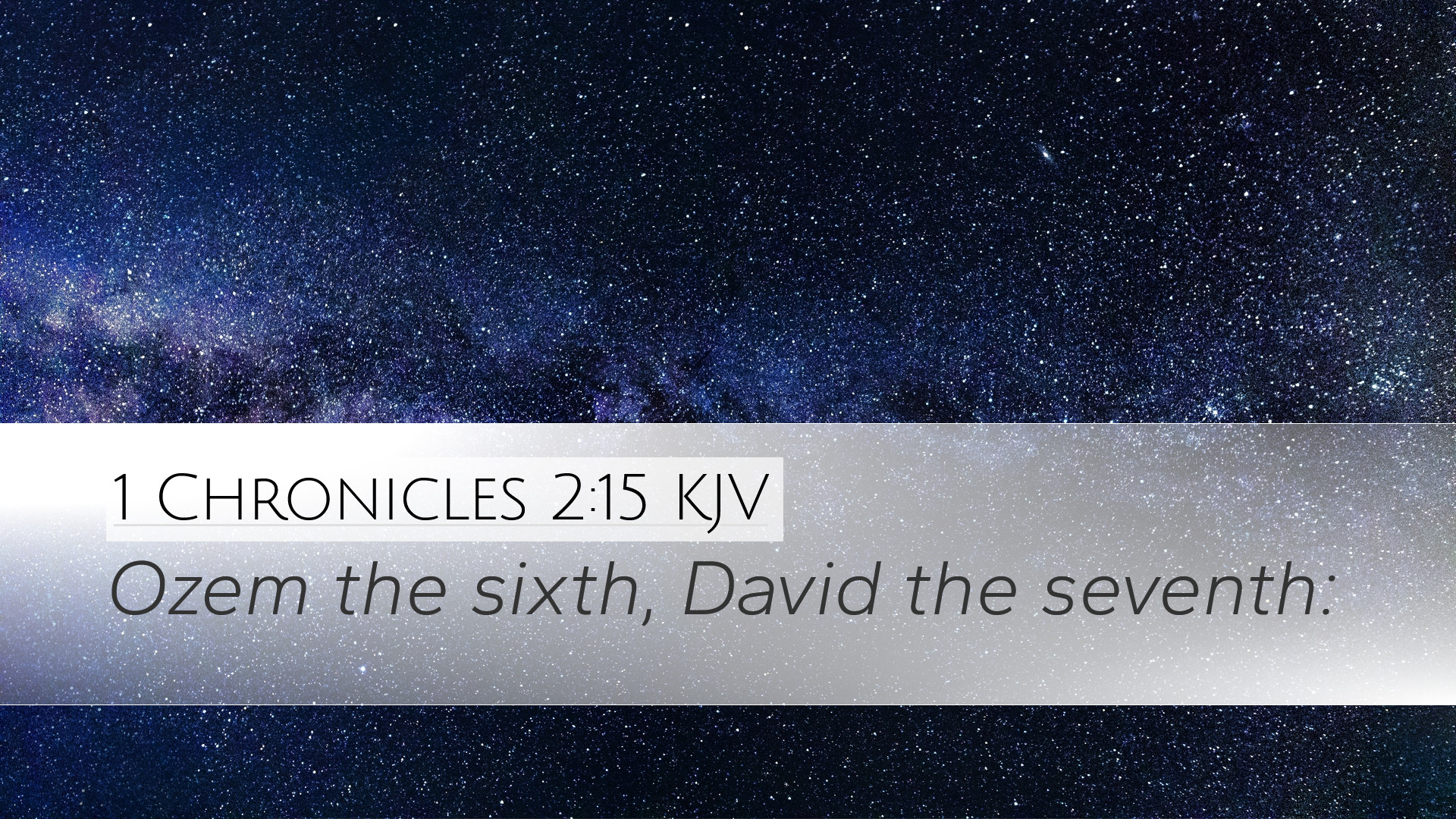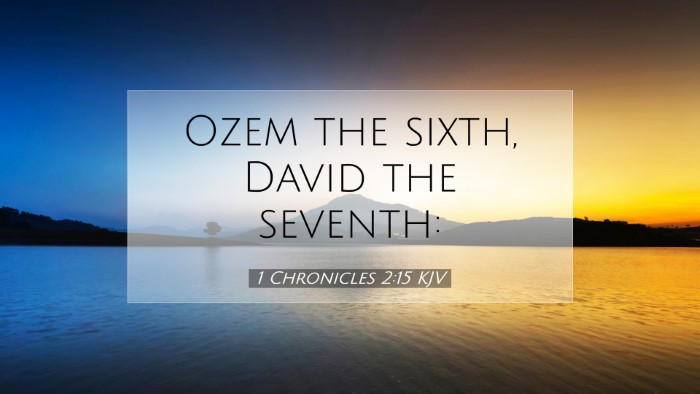Commentary on 1 Chronicles 2:15
1 Chronicles 2:15 states: "The sons of Jerahmeel: Ram the firstborn, and Bunah, and Oren, and Ozem, and Ahijah." This verse is a part of the genealogical list found in the opening chapters of 1 Chronicles, which provides a comprehensive record of Israel's lineage. The Chronicles serve to remind the post-exilic Jewish community of their heritage and God's faithfulness through history.
Overview
This genealogical record from 1 Chronicles is not merely a list of names; it holds significant theological implications. The focus on Jerahmeel's descendants emphasizes the continuity of God's covenant relationship with Israel. Each name within this lineage carries with it a story and an identity within the larger narrative of God's people.
Insights from Public Domain Commentaries
Matthew Henry
According to Matthew Henry, the genealogies serve as an important record of God’s providence, emphasizing His appreciation for order and structure within His people. Henry notes that Ram, being the firstborn, highlights the significance placed on birthright and leadership within families. The mention of subsequent sons like Bunah, Oren, Ozem, and Ahijah also reflects the diversified roles within the tribe, suggesting that while the firstborn inherits leadership, all members have important functions in God’s plan.
Albert Barnes
Albert Barnes offers insight into the historical context of these names. He indicates that names carry significant meaning in Hebrew culture and often reflect the characteristics or aspirations of individuals. For instance, "Oren" may suggest strength, aligning with the themes of valor and endurance found throughout Israel's history. Barnes also asserts that studying these genealogies is vital for understanding God's faithfulness, linking each name to the broader narrative of Israel's covenant with God.
Adam Clarke
Adam Clarke delves into the spiritual reflections tied to the genealogical names. He interprets the specification of each son as a reminder that God’s blessings are not confined to prominent figures but extend to all members of the community. This broadens the perception of spiritual heritage and the collective identity among God's people. Clarke emphasizes that personal faithfulness can lead to generational blessings, illustrating the importance of maintaining one’s relationship with God for future descendants.
Theological Themes
- Covenant Faithfulness: The genealogy shows that God honors His promises across generations.
- Identity and Heritage: Each name signifies an aspect of Israel’s communal identity—reminding us that we are part of a larger story.
- Role of Leadership: The mention of the firstborn Ram emphasizes traditional views on leadership and responsibility in Israel.
- Community and Dependence: All names listed assure that each individual, regardless of their birth order, plays a part in the kingdom’s mission.
Conclusion
As we analyze 1 Chronicles 2:15 and its genealogical context, we uncover a rich tapestry of God’s purposes woven through history. The verse prompts a deep reflection on the nature of God's community—where every member holds value. For pastors, students, and theologians alike, this passage serves as a reminder of the interconnectedness of God’s work through generations and challenges us to recognize our place within this divine narrative.
In the spirit of biblical scholarship, it becomes crucial to approach such texts with a nuanced understanding, aware that even in the minutiae of genealogical records, there is deep theology waiting to be discovered. The insights from Henry, Barnes, and Clarke provide a meaningful foundation for further exploration and application of these truths in our lives today.


